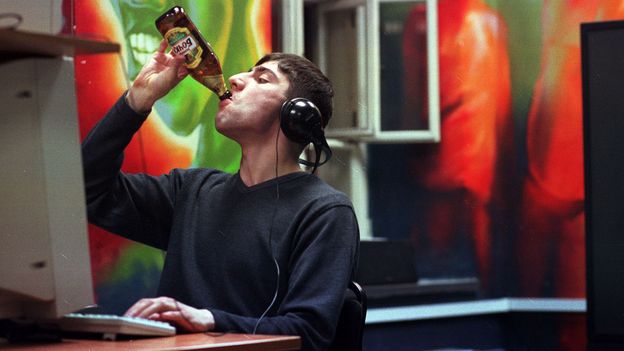The researchers had suspected that the alter ego would be a more extreme form of self-distancing, and the results showed exactly that. While the children thinking in the third person spent about 10% more of the total available time on the task that those thinking in the first person, it was the children inhabiting their alter egos who stuck it out for the longest of all. Overall, they spent 13% more of the total available time on the task than those thinking in the third person (and 23% more than those thinking about their behaviour in the first person).
White has also found that adopting an alter ego can also help children to concentrate on a complex card game, in which they had to follow complex rules that kept on changing. Once again, “the Batman effect” seemed to have increased their resolve and concentration, improving their “executive function”.
While these were laboratory experiments, White hopes that this small exercise might ease many situations that require self-control. The test of perseverance, after all, was already very close to the kind of decisions that children might face when doing their homework with the potential temptation of the TV or cell phone. She thinks it may also be useful to avoid feeling dispirited during new challenges. “Pretending to be someone who’s more competent, and getting that distance from the situation, could help them to overcome the frustration they’re feeling when they’re learning something new.”
What would Beyoncé do?
Given these findings and the benefits of self-distancing more generally, White suspects that we could all boost our emotional regulation, self-control and general poise by choosing to embody another persona à la Sasha Fierce.
After all, certain religious initiatives already encourage this kind of thinking, she says. “When I was growing up in the ‘90s, there were all these bracelets that said, ‘WWJD’ – What would Jesus do?” she says. “So, I think it’s a pretty intuitive concept to a lot of people.”
If you want to try it yourself, White suggests picking a different person for different types of goals – maybe a wise member of your family for a personal dilemma, or a work mentor for a professional problem. “When I was a postdoc, we had a little saying in our lab that if you’re an undergrad, pretend to be a grad student. If you are a grad student, pretend to be a postdoc, and if you’re a postdoc, pretend to be the leader of the lab – just to get you to that next level,” she says.
Whatever persona we choose, the practice should create some psychological space away from potentially distracting feelings, while also reminding us of the behaviours we want to emulate. Whether we’re placing ourselves in the shoes of a friend, a religious figure, or Beyoncé herself, a little imagination might put us all a little closer to the person we wish to become.
David Robson is the author of The Intelligence Trap: Why Smart People Do Dumb Things (WW Norton/Hodder & Stoughton), which examines the cutting-edge psychology of irrational thinking and the best ways to make wiser decisions.













